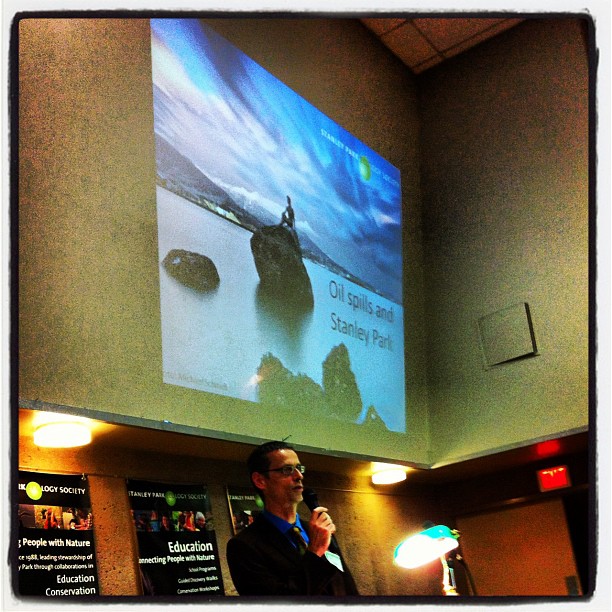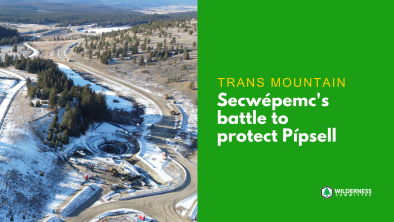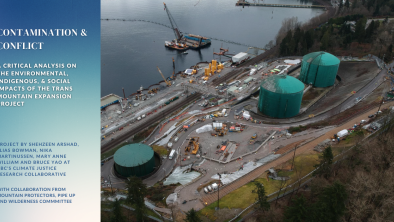Oil spill impact lasts a lifetime: marine scientist
News 1130

Experts discuss potential disaster to ecology
The impact of an oil spill in Burrard Inlet would last a lifetime according to a prominent marine scientist.
About a hundred people turned up for the event held at the West End Community Centre to hear aboutthe dangers of a potential disaster on animals on land and in the sea. Lance Barrett-Lennard with the Vancouver Aquarium, Ben West with the Wilderness Committee and Robyn Worcester with the Stanley Park Ecology Society were among the panelists.
You've seen the images of fish and birds covered in oil but what you can't see is just as harmful says Lance Barrett-Lennard.
"The affects that people aren't as aware of is how long these impacts go on. The oil gets in the sediment, it gets in the rocks, it gets in the gravel and then it leaches slowly out over time. It poisons the food change, not necessarily lethally but injures the food chain. It impairs the food chain for tens of years," says Barrett-Lennard.
To make matters worse, he says bitumen will be even harder to clean up than crude oil.
"One of the scariest things about this type of oil, it's very different from diesel, it's very different from lighter oils. It sinks. So imagine you've got an oil spill effort focused on skimming off the oil on the surface, that's hard to do, but there is technology for doing that. (If) it ends up on the beaches, that's hard to clean but there is some technology for doing that. (If) it ends up on the bottom of the ocean, then there's no technology for dealing with that," explains Barrett-Lennard.
After hearing experts talk about declining marine populations as a result of pollution, many people came out of the meeting depressed or angry.
Some people question how prepared governments would be in response to such disasters.
"With the heavier oil, it's almost impossible to clean up, and that's scary," says Jim.
"If you walk through the aquarium, the thought of all that being damaged, just being wiped out is horrifying," adds Karen.
"People are going to see all the animals that potentially use their habitats and their lives and they still won't get out of their cars," says Monica.
Some area also worried Stanley Park would lose its recreational value if there was a spill.


